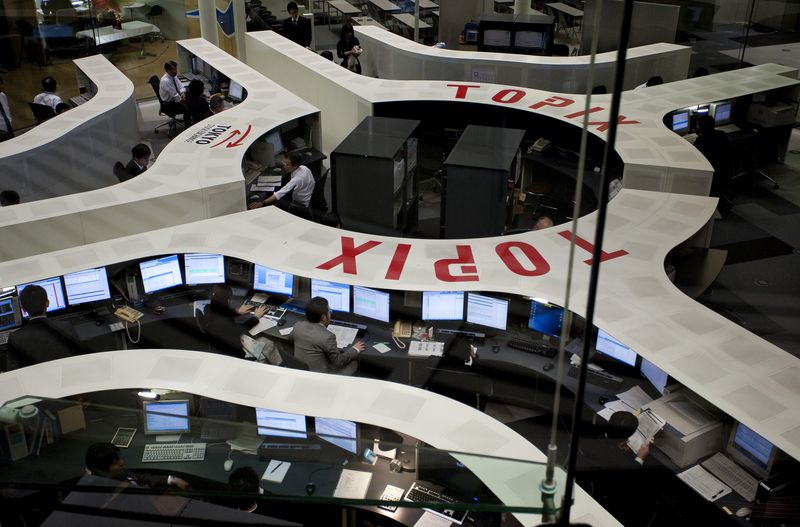Japan attracts global PE players

Japan’s private equity exit environment is booming as a drive for corporate governance reforms and improvements in shareholder value has made companies more receptive to deals, prompting more global players to consider the market.
Investors have long called for corporate reforms in Japan, but that push gained fresh impetus in March 2023, when the Tokyo Stock Exchange asked listed companies to increase their price-to-book ratios, profitability and capital efficiency.
Since then, the country has seen a surge in cross-border M&A, take-private transactions, share buybacks and IPOs, with private equity activity reaching fever pitch this year. The value of private equity-backed exits in Japan has surged 349% year to date to US$13.6bn, according to LSEG data. The number of such deals has risen 27% to 108 in the year until October 8.
There is significant headroom for growth in PE and M&A activity, and both domestic and international fund managers are growing their presence, according to Bain & Co's Japan private equity report released in June. International investors such as Singapore's GIC, Hong Kong's Hillhouse Investment and HSG, formerly Sequoia Capital China, have set up shop in Japan recently, according to the report.
Additionally, global funds such as Bain Capital, CVC Capital Partners, KKR, Blackstone and Carlyle deployed more of their Asia-targeted capital in Japan between 2020 and 2024 than in the preceding five-year period, the report shows. Apollo Global Management has said its Japan office will be its fastest-growing in the region over the next two years, according to Bain.
"We have seen a clear and increasing interest from PEs in general to enter Japan over the past years, setting up teams and redeploying part of their capital to Japan given its appeal versus some other APAC markets," said Jean-Baptiste Peloux, head of BNP Paribas' fund financing group in Asia Pacific and leveraged finance for North Asia. "Japan has clearly become a hotspot for PEs."
US-based TypeOne Ventures is one such firm. TypeOne, which focuses on deep tech, AI, space, advanced materials, and next-generation infrastructure, wants to serve as a bridge between global deep technology firms and Japan.
“Japan is one of the world’s leading manufacturing and technology economies, and we see huge potential in connecting large corporates with startups,” said Ryutaro Hiroshima, head of Japan at TypeOne. The goal “isn’t just to deploy capital but to act as a bridge between Japanese corporates, startups, and the global market — helping Japanese corporates’ portfolio companies expand abroad, and bringing overseas frontier tech into Japan."
The firm has yet to make an investment in Japan but is ready to move for the right opportunity.
Another draw for global firms in Japan is the weakening yen, which makes investing in the country a bargain. Even so, Japan also has a track record of delivering some of the highest returns globally, according to Bain.
Hiroshima believes the exit environment is set to strengthen further on the back of government reforms.
For instance, companies going public on Japan's growth market now have to be able to bring their market capitalisation up to ¥10bn (US$65.5m) within five years of listing. Previously, these companies had to have a market capitalisation of ¥4bn or more within 10 years of listing.
“The IPO market is healthy at the moment," Hiroshima said, adding that the rule "is a game-changer. Many companies that could previously go public at ¥5bn–¥7bn will find it much harder, so we expect more companies to pivot to M&A as an exit,” rather than planning IPOs, he said. “Ultimately, that should improve overall quality and make the market healthier for investors.”
The increase in the number and size of private equity players has also propelled a rise in sponsor-to-sponsor exits, which give corporates more time and flexibility to grow and get ready for an IPO at a good valuation.
“IPOs can be lengthy and uncertain, whereas handing the baton to another PE fund with proven value-up skills can deliver outcomes more quickly — so the sponsor-to-sponsor route has become an attractive alternative,” Hiroshima said.
Additionally, some listed companies are turning to PE funds to go private as they try to revamp themselves.
The trend is beneficial for PE funds, he said. “You get better alignment with management, can move faster on transformations like carve-outs, M&A or talent upgrades, and have more flexibility for future exits such as re-IPOs or strategic sales.”
Fierce competition
Still, competition is a concern, especially with a shortage of investment professionals in a market where hiring is notoriously hard.
"The Japanese market may not be an easy market for a new PE, as it takes time to build the network, relationship, and trust. You would also have to compete with PEs with a long track record in Japan and very large teams with deep operational competence on the ground already," BNP Paribas' Peloux said. "Competition is fierce."
TypeOne's Hiroshima agrees. “Competition for large deals is intensifying, there’s a shortage of investment professionals, and the pace of governance reform can be an issue."
Even so, Hiroshima is optimistic. "In many ways, that’s also a sign of maturity. With the upcoming IPO rule change reducing small-cap IPOs and expanding the M&A market, we actually think the exit environment in Japan is strengthening. Over the long run we see even more opportunity here.”





